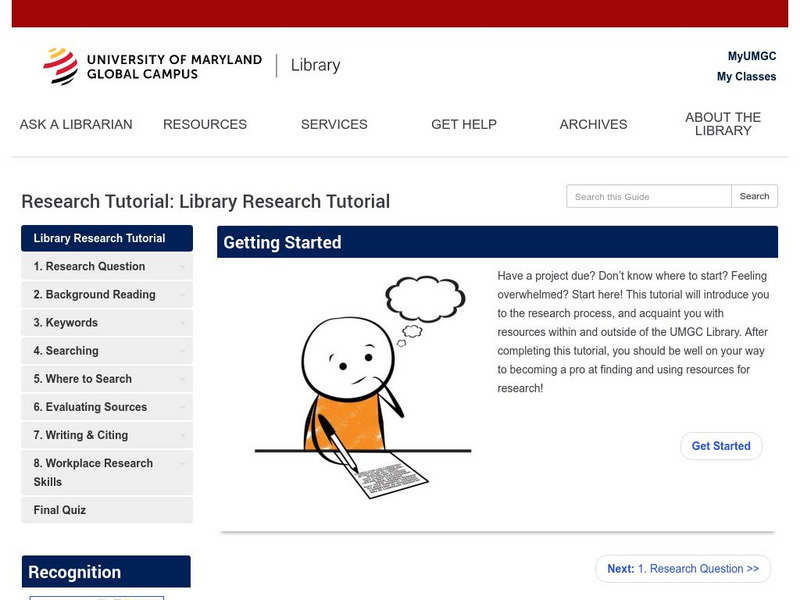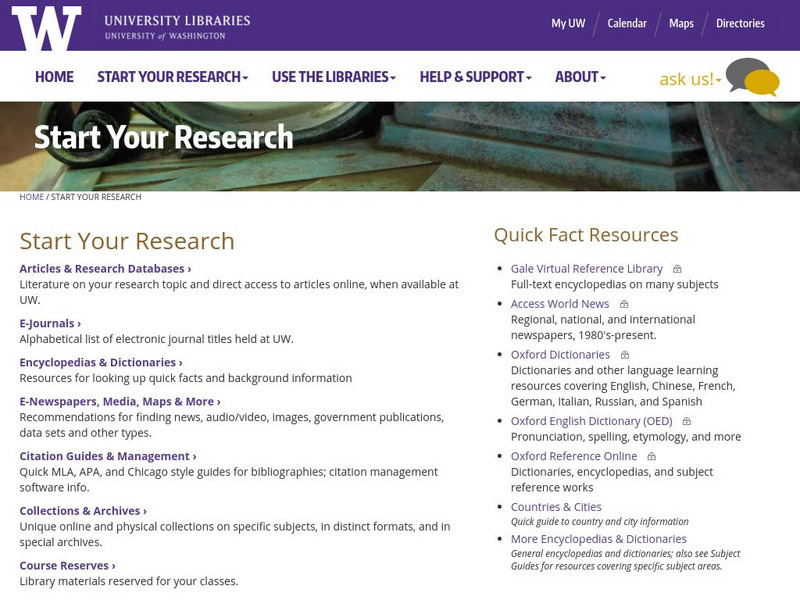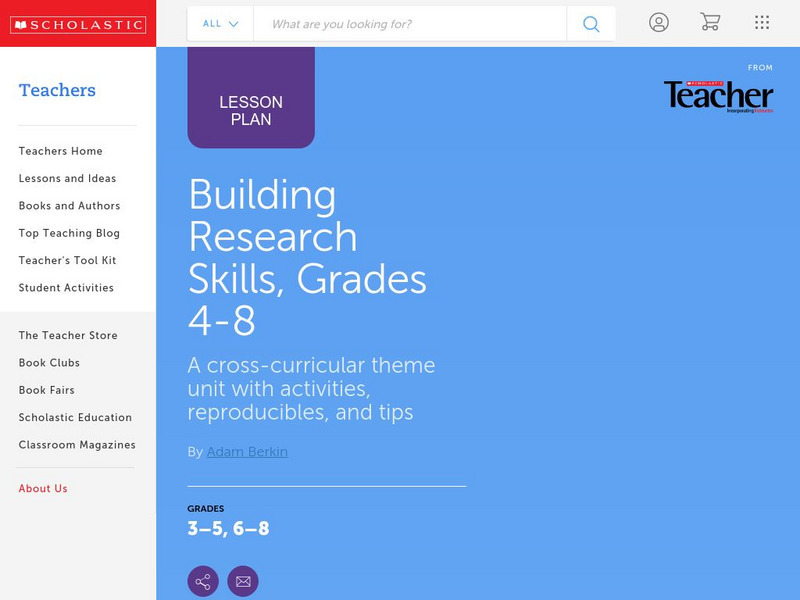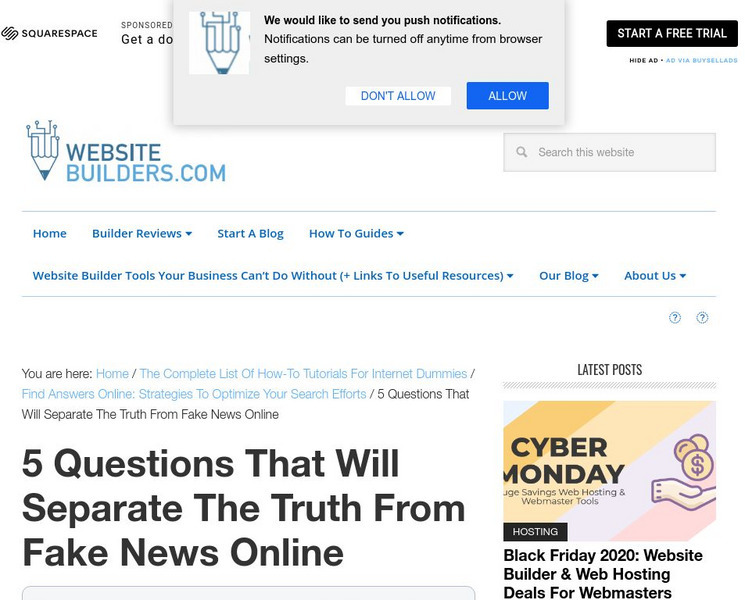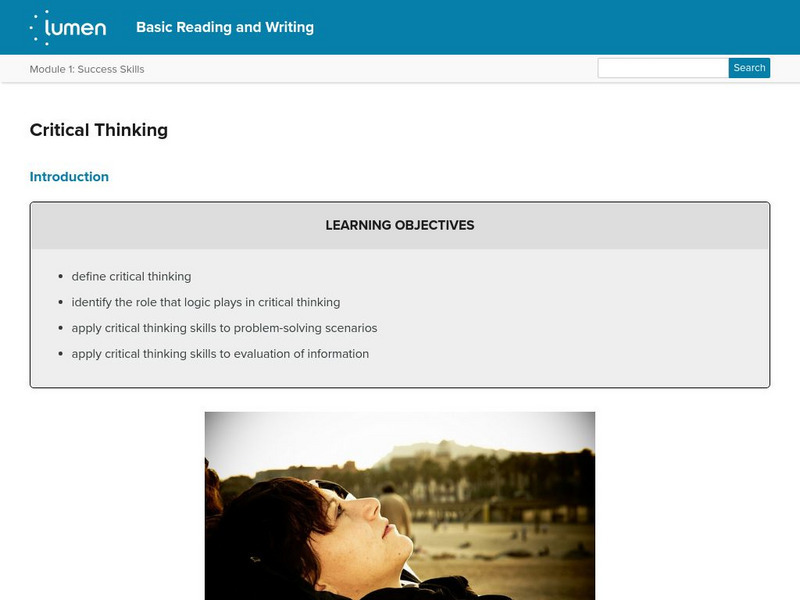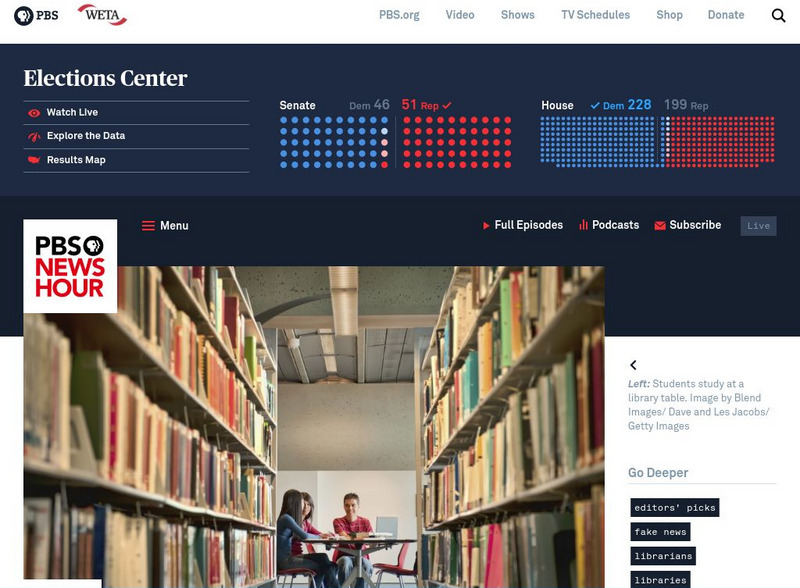New York Times
New York Times: Evaluating Sources in a 'Post Truth' World: Fake News
[Free Registration/Login Required] Need help determining fake news from real news? This seems to be a problem today. Find practical activities and questions to help navigate a media landscape in which it is increasingly difficult to tell...
Other
Umuc: Secrets of My Research Success
This 35-minute interactive tutorial models the research process via the story of Quentin, a UMUC student. It takes him through the various research process steps: understand how to locate background information on his topic by showing...
Other
University of Washington Libraries: Starting Research
If you need help knowing where to start your research, or if you're a teacher looking for a way to help students understand the research process, this resource is terrific. Interactive tutorials on a number of topics offer review quizzes...
Other
Oregon School Library Information System
An excellent site that supports school libraries which includes tools for both elementary and secondary students. Choose the appropriate level to find resources on citing sources, research process, choosing research resources, finding...
Media Smarts
Media Smarts: How to Recognize False Content Online: The New 5 Ws [Pdf]
A tip sheet to help both students and adults learn how to test online content for validity.
NPR: National Public Radio
Npr: Five Ways Teachers Are Fighting Fake News
Since a recent Stanford study showed that students at practically all grade levels can't determine fake news from the real stuff, the push to teach media literacy has gained new momentum. This article gives five quality examples of...
PBS
Pbs News Hour: Did Fake News Influence the Outcome of Election 2016?
Don't believe everything that is read on the Internet! So many people around the world follow the news, all news, that they find posted on social media. Some news is real, some news is fake. How much of the fake news might have...
Other
Oslis: Research Process
Excellent site outlining each step for Internet research for grades 6-12. This site focuses on writing a research paper from selecting a topic through to the final paper. Click on Cite My Sources to get the electronic citation machines....
Associated Press
Associated Press: Facebook's Fake News Problem: What's Its Responsibility?
Is it real? Is it reliable? Can it be confirmed? Always check sources of news found through social media outlets before believing it. Facebook's Mark Zuckerberg is facing criticism for the amount of fake news posted on Facebook....
Other
Scholarly Resources: What's the Difference?
This succinct explanation shows you what the difference is between a scholarly and a popular periodical or other resource.
University of Illinois
University of Illinois Extension: Is It What I Think or What I Know? (Fact or Opinion)
This short lesson provides a fairly simple way to teach young students the difference between fact and opinion.
Cornell University
Cornell University: Evaluating Web Sites: Criteria and Tools
Examining context as well as other factors is important for research success. Learn what questions to ask and what factors to look for in the evaluation process.
Scholastic
Scholastic: Building Research Skills, Grades 4 8
Students in Grades 4 through 8 will benefit from these research skills activities. This resource provides several learning activities and tips. CCSS.ELA-Literacy.WHST.6-8.7 Conduct short research projects
Other
Channel One: Lesson Plan: How to Spot Fake News
A lesson plan explores the problem of fake news sites, featuring a Channel One News video about the issue. What are the best approaches to decoding the real from the fake?
NPR: National Public Radio
Npr: Fake or Real? How to Self Check the News and Get the Facts
Read a story on Facebook. Read the headline and think it's too good to be true, but it looks like it's from a news site. Experts offer tips to help sniff out fact from fake. One of today's greatest challenges in a media bombarded culture.
Other
Learn the net.com: Evaluating Online Information: Fact or Fiction
How can you determine if online information is fact or fiction? Use this online article to become more computer literate in this topic. Includes a video.
Other
Monash University Library: Evaluating What You Find
This site explains how to evaluate the information you find in your research and provides practice exercises. It includes three sections: Evaluating the reliability of sources, Academic research on the internet, and Evaluating academic...
Lumen Learning
Lumen: Success Skills: Critical Thinking
This lesson focuses on critical thinking including a definition, examples, a video of critical thinking in action, logic in critical thinking, questions a critical thinker asks, guidelines for critical thinking, problem-solving, and...
PBS
Pbs News Hour: Column: Can Librarians Help Solve the Fake News Problem?
Was it only a matter of time that people would begin buying into any news, even when it was actually fake? This writer felt it was no surprise. Find out why and how a librarian can help educate students how to best vet resources for...
TED Talks
Ted: Ted Ed: How to Choose Your News
Damon Brown gives the inside scoop on how the opinions and facts (and sometimes non-facts) make their way into the news and how the smart reader can tell them apart. [4:48]
TED Talks
Ted: Ted Ed: How False News Can Spread
In previous decades, most news with global reach came from several major newspapers and networks with the resources to gather information directly. The speed with which information spreads now, however, has created the ideal conditions...
Other
Information Literacy Activities
These worksheets cover many aspects of the research process, as well as censorship, web page evaluation and boolean operators.
Other
Nn/lm: Is This Health Information Good for Me?
A useful list of questions to ask as you use sources of health information and health news reports.



